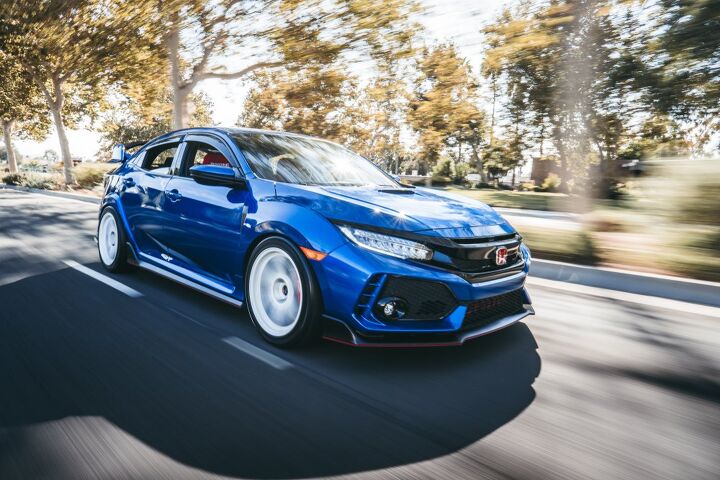Consumer Reports: Most Reliable Car Brands of the Year - Find Out Who Ranks Highest
The automotive industry offers a range of options for consumers seeking reliable vehicles. A recent study by Consumer Reports provides a detailed look into the reliability of various car brands, helping buyers make informed decisions.
Leading Brands in Reliability
- Lexus (Score: 79)
- Toyota (Score: 76)
- Mini (Score: 71)
- Acura (Score: 70)
- Honda (Score: 70)
Rounding out the top 10 are Subaru, Mazda, Porsche, BMW, and Kia. These scores reflect a trend towards higher reliability across these manufacturers.
How Reliability is Scored
The methodology behind these scores involves comprehensive surveys of Consumer Reports members, covering over 330,000 vehicles from the years 2000 to 2023, including some early 2024 models. The survey assesses 20 different trouble areas, varying from minor issues to major system faults. The final score, out of 100, is a combination of problem severity, track testing, owner satisfaction, and safety data.
Focus on Electric and Hybrid Vehicles
The study pays special attention to electric and hybrid vehicles, including new criteria specific to these types of vehicles. These criteria assess electric motors, hybrid batteries, and charging systems. Hybrids show 26% fewer problems than traditional vehicles, but plug-in hybrids and electric vehicles often score lower in reliability.
Reliability by Region
Asian car manufacturers lead in reliability with an average score of 63, followed by European brands at 46 and domestic brands at 39. Cars, including sedans, hatchbacks, and wagons, are noted as the most reliable vehicle type.
Highlights of Specific Models
In model-specific observations, Lexus's NX model scores average in predicted reliability, with the rest of its lineup above average. Toyota's 4Runner SUV is noted for its high reliability, while the Tundra is marked for lower reliability. Acura's RDX and TLX models receive praise for their above-average reliability.
This article was co-written using AI and was then heavily edited and optimized by our editorial team.
More by TTAC Staff
Latest Car Reviews
Read moreLatest Product Reviews
Read moreRecent Comments
- W Conrad I'm not afraid of them, but they aren't needed for everyone or everywhere. Long haul and highway driving sure, but in the city, nope.
- Jalop1991 In a manner similar to PHEV being the correct answer, I declare RPVs to be the correct answer here.We're doing it with certain aircraft; why not with cars on the ground, using hardware and tools like Telsa's "FSD" or GM's "SuperCruise" as the base?Take the local Uber driver out of the car, and put him in a professional centralized environment from where he drives me around. The system and the individual car can have awareness as well as gates, but he's responsible for the driving.Put the tech into my car, and let me buy it as needed. I need someone else to drive me home; hit the button and voila, I've hired a driver for the moment. I don't want to drive 11 hours to my vacation spot; hire the remote pilot for that. When I get there, I have my car and he's still at his normal location, piloting cars for other people.The system would allow for driver rest period, like what's required for truckers, so I might end up with multiple people driving me to the coast. I don't care. And they don't have to be physically with me, therefore they can be way cheaper.Charge taxi-type per-mile rates. For long drives, offer per-trip rates. Offer subscriptions, including miles/hours. Whatever.(And for grins, dress the remote pilots all as Johnnie.)Start this out with big rigs. Take the trucker away from the long haul driving, and let him be there for emergencies and the short haul parts of the trip.And in a manner similar to PHEVs being discredited, I fully expect to be razzed for this brilliant idea (not unlike how Alan Kay wasn't recognized until many many years later for his Dynabook vision).
- B-BodyBuick84 Not afraid of AV's as I highly doubt they will ever be %100 viable for our roads. Stop-and-go downtown city or rush hour highway traffic? I can see that, but otherwise there's simply too many variables. Bad weather conditions, faded road lines or markings, reflective surfaces with glare, etc. There's also the issue of cultural norms. About a decade ago there was actually an online test called 'The Morality Machine' one could do online where you were in control of an AV and choose what action to take when a crash was inevitable. I think something like 2.5 million people across the world participated? For example, do you hit and most likely kill the elderly couple strolling across the crosswalk or crash the vehicle into a cement barrier and almost certainly cause the death of the vehicle occupants? What if it's a parent and child? In N. America 98% of people choose to hit the elderly couple and save themselves while in Asia, the exact opposite happened where 98% choose to hit the parent and child. Why? Cultural differences. Asia puts a lot of emphasis on respecting their elderly while N. America has a culture of 'save/ protect the children'. Are these AV's going to respect that culture? Is a VW Jetta or Buick Envision AV going to have different programming depending on whether it's sold in Canada or Taiwan? how's that going to effect legislation and legal battles when a crash inevitibly does happen? These are the true barriers to mass AV adoption, and in the 10 years since that test came out, there has been zero answers or progress on this matter. So no, I'm not afraid of AV's simply because with the exception of a few specific situations, most avenues are going to prove to be a dead-end for automakers.
- Mike Bradley Autonomous cars were developed in Silicon Valley. For new products there, the standard business plan is to put a barely-functioning product on the market right away and wait for the early-adopter customers to find the flaws. That's exactly what's happened. Detroit's plan is pretty much the opposite, but Detroit isn't developing this product. That's why dealers, for instance, haven't been trained in the cars.
- Dartman https://apnews.com/article/artificial-intelligence-fighter-jets-air-force-6a1100c96a73ca9b7f41cbd6a2753fdaAutonomous/Ai is here now. The question is implementation and acceptance.


































Comments
Join the conversation